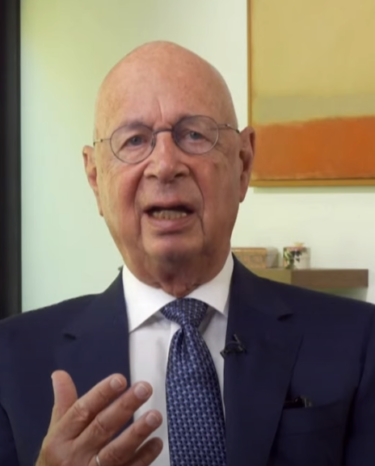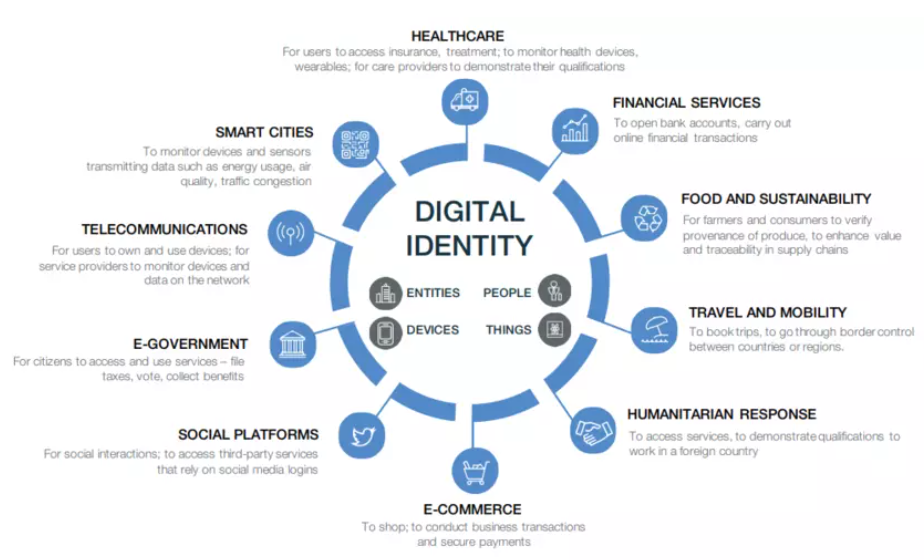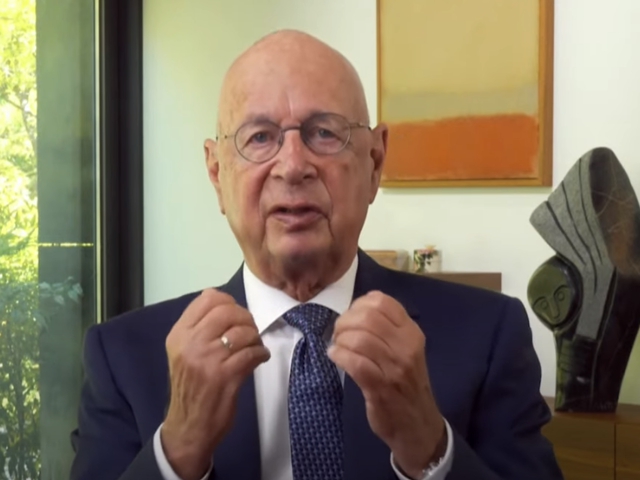World Economic Forum Founder Klaus Schwab opens Cyber Polygon 2021 with a warning: “A lack of cybersecurity has become a clear and immediate danger to our society worldwide.”
Giving the welcoming remarks at Cyber Polygon for the second year in a row, Schwab spoke at length about the World Economic Forum’s (WEF) desire to tackle cybersecurity by bringing together a closer merger of corporations, small businesses, and governments.
Last year, Schwab warned, “We all know, but still pay insufficient attention to, the frightening scenario of a comprehensive cyber attack, which would bring a complete halt to the power supply, transportation, hospital services, our society as a whole.”
“We have seen in the past few months, for example, ransomware attacks targeting hospitals, critical infrastructure, school systems, the power grid, and many other essential services” — Klaus Schwab, Cyber Polygon 2021
This year, Schwab followed-up on his “frightening scenario” by highlighting the recent ransomware attacks that have struck critical infrastructures around the world in 2021.
“The implication is clear: a lack of cybersecurity has become a clear and immediate danger to our society worldwide,” Schwab said today.
“We have seen in the past few months, for example, ransomware attacks targeting hospitals, critical infrastructure, school systems, the power grid, and many other essential services.

Klaus Schwab
“Citizens are impacted by energy shortages, delayed medical treatment, and other effects this new breed of audacious cyberattacks causes” — Klaus Schwab, Cyber Polygon 2021
“Citizens are feeling the repercussions of cyberattacks directly.
“Citizens are impacted by energy shortages, delayed medical treatment, and other effects this new breed of audacious cyberattacks causes.
“This is not a problem that is easily solved.
“Ransomware attacks are complex, and criminal enterprises are increasing their scale and impact.
“This highlights the need for a structured multi-stakeholder, multi-lateral approach to secure our society against them,” he added.
“The implication is clear: a lack of cybersecurity has become a clear and immediate danger to our society worldwide” — Klaus Schwab, Cyber Polygon 2021
“The EU-proposed Digital Law […] aims to provide a safe way for citizens to access and link public and private services online” — Klaus Schwab, Cyber Polygon 2021
Schwab praised the speed of digital innovation that occurred during the COVID crisis, highlighting a digital law proposed by the European Union that goes hand-in-hand with the WEF’s great reset agenda — digital identity schemes — that keep a record of all your online activity and can provide or restrict citizen access to essential goods and services.
“There is, for example,” said Schwab, “the EU-proposed Digital Law that aims to provide a safe way for citizens to access and link public and private services online.
“If new services are to be adopted at the speed necessary for long-term sustained economic recovery, citizens must be able to trust that the technologies are secure, and that their assets and personal information and data are protected.
“The principle of trust will be absolutely necessary.”

Image Source: World Economic Forum
“We need to build IT infrastructures that have digital antibodies built-in inherently to protect themselves” — Klaus Schwab, Cyber Polygon 2021
As the World Economic Forum and partners continue prepping for cyber pandemic, this year Schwab elaborated on the “pandemic” theme as it related to cybersecurity, saying that IT infrastructures must be built with “digital antibodies” to give themselves immunity from viruses.
“We have to protect ourselves not only against the virus, we also have to develop the ability to withstand a virus attack,” he said.
“In other words, masks are not sufficient. We need vaccines to immunize ourselves.
“The same is true for cyberattacks. Here, too, we have to move from simple protection to immunization.
“We need to build IT infrastructures that have digital antibodies built-in inherently to protect themselves,” Schwab added.
The goal of this year’s Cyber Polygon exercise is to “secure digital ecosystems.”
Securing digital ecosystems can only be done, according to Schwab, through public-private cooperation.
“Governments are in charge of guaranteeing security, but the deep expertise that is needed to develop a secure cyber ecosystem often lies with the private sector” — Klaus Schwab, Cyber Polygon 2021
“We have come together today to discuss how we can develop secure digital ecosystems and protect companies, but also societies, from cyberattacks,” the World Economic Forum founder said.
“We must do so with a broader mission in mind — to improve the state of our digital world by enhancing, on the one hand, global cooperation, but also public-private cooperation.”
What does Schwab mean by public-private cooperation?
“We must all work together,” he explained, adding, “Governments are in charge of guaranteeing security, but the deep expertise that is needed to develop a secure cyber ecosystem often lies with the private sector.
“Similarly, just as governments are often pooling their resources with each other with international organizations, such as INTERPOL, to fight cybercrime, we need more similar collaboration between governments — and I should add private businesses — to fight cybercrime.”
“Good cybersecurity enables business continuity at a time when a single point of failure in only one organization can become a systemic calamity with repercussions for the whole of society” — Klaus Schwab, Cyber Polygon 2021
For Schwab and the WEF, every organization must have cybersecurity as a principle foundation as they create new and expanded digital ecosystems.
“Good cybersecurity enables business continuity at a time when a single point of failure in only one organization can become a systemic calamity with repercussions for the whole of society,” he said.
“As our digital landscape expands, along with our dependence on it, we need to continuously reconsider and refine our expectations of cybersecurity.”
“To help the economy — to bounce back from the COVID-19 crisis — governments, enterprises, and also small business will continue to need innovative ways to build and give access to services” — Klaus Schwab, Cyber Polygon 2021
Schwab added, “Going forward, it must be now one of the first thoughts and priorities that any organization has.
“It is one of the foundations of business sustainability and continuity in the future, and it is becoming an important part of every organization’s brand and reputation.
“In this era, and in the future, cybersecurity will be the foundation for trustworthy technologies and businesses.
“To help the economy — to bounce back from the COVID-19 crisis — governments, enterprises, and also small business will continue to need innovative ways to build and give access to services.”
“Technology has been central to the way we have collectively managed the COVID-19 pandemic and the global crisis” — Klaus Schwab, Cyber Polygon 2021
For better context on the above quotes, here is a transcript of Schwab’s opening remarks from Cyber Polygon 2021, starting where he begins to talk about the theme of the event.
“Allow me now to reflect on today’s theme, which is to develop secure digital ecosystems.
“It is remarkable how quickly this goal has become so important around the world.
“Three years ago, we initiated our Center for Cybersecurity here at the World Economic Forum.
“We recognized, already then, the crucial importance of cybersecurity as a global issue and as a corporate challenge.
“We did not expect; however, that digital connectivity and cybersecurity would come to support and influence every aspect of our business and social lives as it has done particularly in the past year.
“It is not an overstatement to say that it has enabled us to continue to function during a time of unprecedented crisis” — Klaus Schwab, Cyber Polygon 2021
“Digital connections are embedded in our homes, our workplaces, and through operation technology — our critical infrastructure.
“This connectivity has allowed us to realize incredible efficiency, even in a world where we worked remotely.
“It is not an overstatement to say that it has enabled us to continue to function during a time of unprecedented crisis.
“Technology has been central to the way we have collectively managed the COVID-19 pandemic and the global crisis.
“Digital infrastructure made it possible to deliver essential services. It helped business to run, and it helped us to maintain contact with each other.
“Digitalization has helped to serve some of the major hurdles put in place by the pandemic, but it has also opened us up to new challenges.
“One of the most important amongst them is how to ensure digital technologies and communications are safe, secure, and trustworthy.
“Many technology leaders have noted that within a few short months, we have achieved advances in digital transformation that might otherwise have taken years.
“Cyber incidents can undermine the trust in key online services, and they could derail adoption of socially-valuable innovations” — Klaus Schwab, Cyber Polygon 2021
“But this digital dividend of the COVID pandemic is fragile.
“Cyber incidents can undermine the trust in key online services, and they could derail adoption of socially-valuable innovations.
“The World Economic Forum’s ‘Global Risks Report’ includes cybersecurity failure and IT infrastructure breakdowns in its top 10 risks — both by likelihood and by impact.
“The implication is clear: a lack of cybersecurity has become a clear and immediate danger to our society worldwide.
“Citizens are impacted by energy shortages, delayed medical treatment, and other effects this new breed of audacious cyberattacks causes” — Klaus Schwab, Cyber Polygon 2021
“We have seen in the past few months, for example, ransomware attacks targeting hospitals, critical infrastructure, school systems, the power grid, and many other essential services.
“Citizens are feeling the repercussions of cyberattacks directly.
“Citizens are impacted by energy shortages, delayed medical treatment, and other effects this new breed of audacious cyberattacks causes.
“This is not a problem that is easily solved.
“Ransomware attacks are complex, and criminal enterprises are increasing their scale and impact.
“This highlights the need for a structured multi-stakeholder, multi-lateral approach to secure our society against them.
“We must all work together. Governments are in charge of guaranteeing security, but the deep expertise that is needed to develop a secure cyber ecosystem often lies with the private sector.
“Similarly, just as governments are often pooling their resources with each other with international organizations, such as INTERPOL, to fight cybercrime, we need more similar collaboration between governments — and I should add private businesses — to fight cybercrime.
“During the pandemic, the paradigm shift to a digital way of life has made the role of cybersecurity as a global public good even more pronounced” — Klaus Schwab, Cyber Polygon 2021
“The good news is that such public-private collaboration efforts already exist as we demonstrate today.
“Recognizing the need to mobilize a global response to the growing cyber threats, the World Economic Forum launched the Center for Cybersecurity, as I mentioned, in 2018.
“Our Center provides an independent and impartial platform to foster collaboration between all members of the global cybersecurity community — both in the public and in the private sectors.
“Sberbank, together with other companies from around the world, is a founding member and actively involved in our initiatives aimed at addressing systemic cybersecurity challenges, and finally, to restore and to improve digital trust.
“During the pandemic, the paradigm shift to a digital way of life has made the role of cybersecurity as a global public good even more pronounced.
“In this era, and in the future, cybersecurity will be the foundation for trustworthy technologies and businesses” — Klaus Schwab, Cyber Polygon 2021
“Good cybersecurity enables business continuity at a time when a single point of failure in only one organization can become a systemic calamity with repercussions for the whole of society.
“As our digital landscape expands, along with our dependence on it, we need to continuously reconsider and refine our expectations of cybersecurity.
“Going forward, it must be now one of the first thoughts and priorities that any organization has.
“It is one of the foundations of business sustainability and continuity in the future, and it is becoming an important part of every organization’s brand and reputation.
“To help the economy — to bounce back from the COVID-19 crisis — governments, enterprises, and also small business will continue to need innovative ways to build and give access to services” — Klaus Schwab, Cyber Polygon 2021
“In this era, and in the future, cybersecurity will be the foundation for trustworthy technologies and businesses.
“To help the economy — to bounce back from the COVID-19 crisis — governments, enterprises, and also small business will continue to need innovative ways to build and give access to services.
“In many cases, this means further connecting services and data — creating completely new digital and expanded digital ecosystems.
“The principle of trust will be absolutely necessary” — Klaus Schwab, Cyber Polygon 2021
“This demands an understanding of cyber risks these new systems will face, and proactive efforts to build those systems with security-by-design principles in mind.
“In the early stages of the pandemic, we saw the adoption of large-scale working-from-home arrangements, cloud services, and video conferencing.
“This seemed transformational at the time, only a few short moments ago, but today we are witnessing the proliferation of even more ambitious initiatives.
“There is, for example, the EU-proposed Digital Law that aims to provide a safe way for citizens to access and link public and private services online.
“If new services are to be adopted at the speed necessary for long-term sustained economic recovery, citizens must be able to trust that the technologies are secure, and that their assets and personal information and data are protected.
“The principle of trust will be absolutely necessary.
“We have to protect ourselves not only against the virus, we also have to develop the ability to withstand a virus attack” — Klaus Schwab, Cyber Polygon 2021
“Finally, one of the lessons of the COVID-19 pandemic is also the notion of resilience.
“We have to protect ourselves not only against the virus, we also have to develop the ability to withstand a virus attack.
“In other words, masks are not sufficient. We need vaccines to immunize ourselves.
“The same is true for cyberattacks. Here, too, we have to move from simple protection to immunization.
“We need to build IT infrastructures that have digital antibodies built-in inherently to protect themselves.
“In conclusion, I would like to state again how essential it is to see the high number of leaders join the Cyber Polygon this year.
“During the course of today, we will test how to work together across organizations, across borders, and across the public and private sector.
“This is a significant step in preparing for an even more highly-connected — and I hope — a highly secure and trusted future.”
Following up on last year’s cyber pandemic simulation, this year’s Cyber Polygon is holding live training exercises responding to “a targeted supply chain attack on a corporate ecosystem in real time.”
Running parallel to the training exercise are discussions on how to tackle everything from ransomware and supply chain attacks to implementing “resilient” digital currencies, and a desire for global governance on the internet.
Prepping for a cyber pandemic: Cyber Polygon 2021 to stage supply chain attack simulation
A timeline of the great reset agenda: from foundation to Event 201 and the pandemic of 2020












